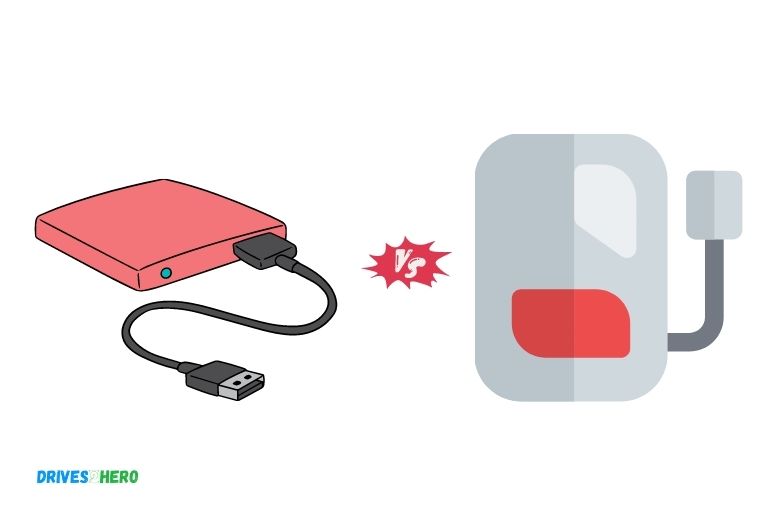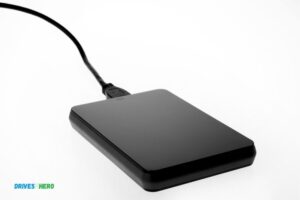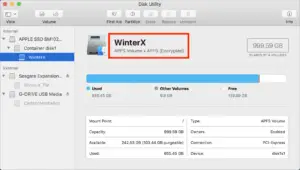Difference between External Hard Drive And Ssd
The main difference between an external hard drive and a SSD (solid state drive) is that an external hard drive uses magnetic disks to store data, while a SSD stores data using flash memory chips.
An external hard drive typically has slower read/write speeds compared to a SSD, but also offers larger capacity storage at lower cost per GB.
External Hard Drives are much larger in size and provide more storage capacity, but they are slower and less reliable than SSDs.
SSDs have faster read and write speeds, lower power consumption, no moving parts, shock resistance and higher reliability compared to hard drives.
Which is Better Ssd Or External Hard Drive?
When deciding which is better, SSD (Solid State Drive) or an external hard drive, it depends on what you’re looking for.
An SSD offers faster read and write speeds than a traditional HDD (Hard Disk Drive), making them ideal for booting up quickly, loading applications faster and transferring data quicker. However, they are more expensive and typically have lower storage capacity than HDDs.
External hard drives offer more storage space at a lower cost but don’t offer the speed of an SSD. Therefore, if you need lots of storage at an affordable price point then an external hard drive would be the better option; however if speed is your priority then choose an SSD instead.
Is an External Ssd the Same As an External Hard Drive?
No, an external SSD is not the same as an external hard drive. An SSD, or solid state drive, uses non-volatile memory chips to store data and is much faster than a traditional hard disk drive (HDD). External HDDs use spinning disks to read and write data.
While they are slower than SSDs, they offer more storage space for less money. Additionally, since HDDs have moving parts that can be damaged by vibrations or shocks, they need additional protection when used in portable devices like laptops.
Is It Worth Getting Ssd External Hard Drive?
When considering whether or not to purchase an SSD external hard drive, it’s important to weigh the benefits and drawbacks.
On the plus side, SSDs have significantly faster read/write speeds than traditional HDDs, making them ideal for transferring large amounts of data quickly and efficiently. Furthermore, they are much lighter in weight and more durable due to their lack of moving parts.
The downside is that they tend to be pricier than equivalent HDD models with larger storage capacities, so if you need a lot of space then an HDD may be a better option.
Ultimately, whether or not an SSD external hard drive is worth it will depend on your individual needs and budget.
Which Lasts Longer External Hdd Or Ssd?
When it comes to overall durability, an external HDD typically lasts longer than an SSD. This is because HDDs have more moving parts and are therefore more susceptible to physical damage or malfunctioning due to their spinning platters.
On the other hand, SSDs contain no moving parts, so they are less prone to physical damage but can still experience failure from wear and tear on their components over time.
Additionally, since external HDDs tend to be larger than internal ones, they also provide better protection against environmental conditions such as heat and humidity which can lead to premature failure in smaller devices like SSDs.
Ultimately though, with proper care and maintenance both storage solutions should last for many years with minimal issues.
Watch Video on Difference between External Hard Drive And Ssd
Ssd Vs Hdd Lifespan
When it comes to lifespan, SSDs have the clear advantage over HDDs. While HDDs typically last for around 3-5 years before failing, SSDs can last up to 10 times longer – with some models lasting as long as 30 years!
This is due to the fact that SSDs don’t contain any moving parts, meaning they are much more reliable than their HDD counterparts and less prone to physical damage.
Explain Three Differences between an Hdd And an Ssd
Hard disk drives (HDDs) and solid-state drives (SSDs) are two popular storage options for computers. In general, HDDs provide more capacity at a lower cost while SSDs offer faster performance with less power consumption.
The three main differences between an HDD and an SSD are their physical size, speed, and durability.
Ssd Vs Hdd Pros And Cons
When it comes to choosing between a Solid State Drive (SSD) and Hard Disk Drive (HDD), there are several pros and cons to consider.
SSDs offer significantly faster read/write speeds, more reliable data storage, quieter operations, lower power consumption, and lighter weight than HDDs. However, they also tend to be more expensive per gigabyte of storage space.
HDDs offer larger capacity for less money but their slower speed can cause them to lag behind when dealing with large files or lots of data transfers at once.
Ultimately you have to weigh the advantages and disadvantages in order to decide which option best fits your needs.
Ssd Vs Hdd
Solid State Drives (SSDs) are quickly becoming the storage medium of choice for many computer users due to their increased speed and reliability over traditional Hard Disk Drives (HDDs).
While HDDs have been around for decades, SSDs offer significantly faster read/write speeds, more reliable performance, and lower power consumption. Additionally, SSDs are much lighter than HDDs making them easier to transport.
However, they tend to be more expensive than HDDs and some require additional hardware or software to use them.
Frequently Asked Question
What is the Primary Difference between an External Hard Drive And an Ssd?
The primary difference between an external hard drive and an SSD is that the former uses a spinning disk to store data, while the latter stores data on non-volatile memory chips. An external hard drive offers more storage space at a lower cost than an SSD but has slower read/write speeds.
Is One Faster Than the Other When It Comes to Transferring Data?
It depends on what type of data is being transferred and which transfer method is used. Generally, transferring data over a wired connection tends to be faster than transferring data wirelessly.
Are There Any Compatibility Issues If I Choose to Use an External Hard Drive Or Ssd for My Computer?
Yes, there are compatibility issues that may arise when using an external hard drive or SSD with a computer. The device must be compatible with the motherboard and other components of the system, as well as any operating system software. Additionally, most external drives will require an additional power source to operate properly.
Does a Solid State Drive Offer Better Protection from Physical Damage Than an External Hard Drive?
No, a solid state drive does not offer better protection from physical damage than an external hard drive. Both are vulnerable to physical damage due to impacts or extreme temperatures.
Conclusion
External hard drives and SSDs offer two very different storage solutions. External hard drives typically offer more space for a lower cost while SSDs are faster but more expensive. It is important to consider each option carefully before making a decision as both have their advantages and drawbacks depending on the individual’s needs. Additionally, it is helpful to keep in mind that an external hard drive can be used with an SSD if extra speed or capacity is desired.







